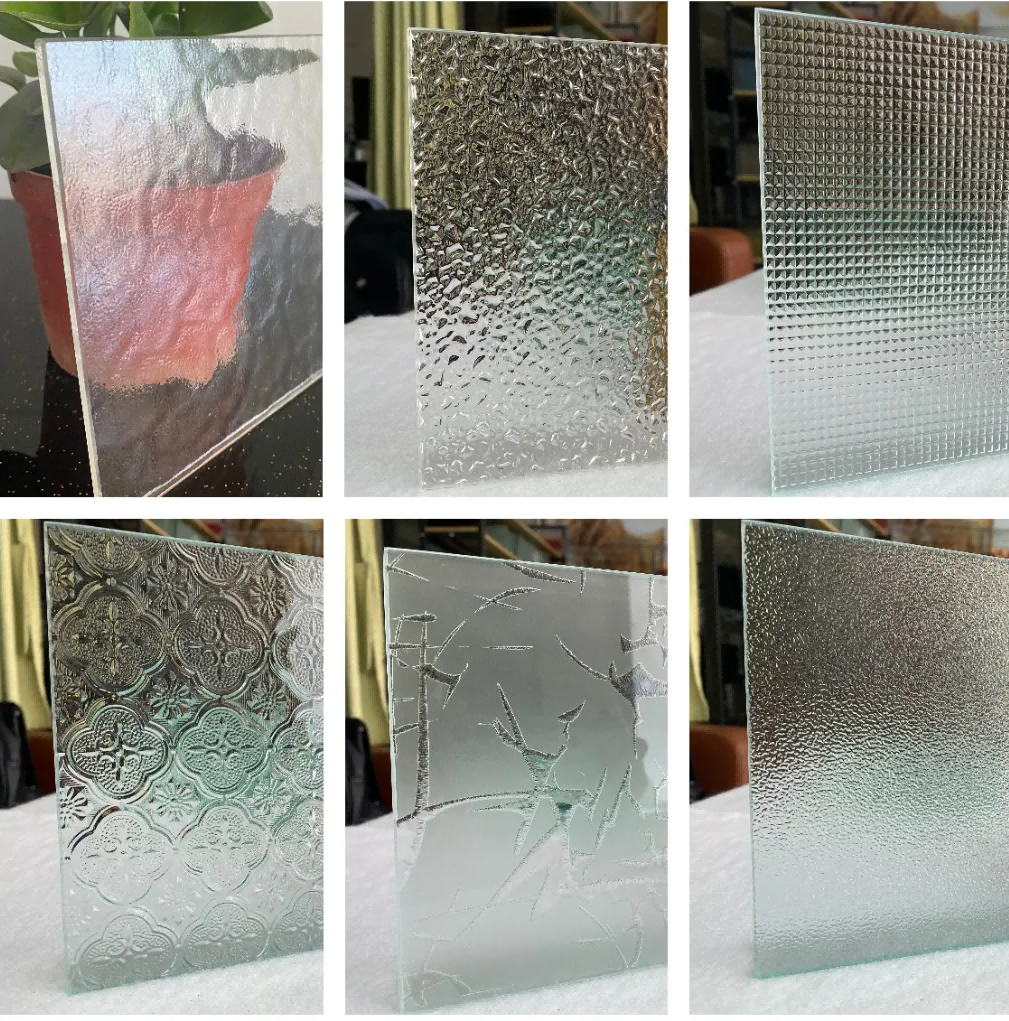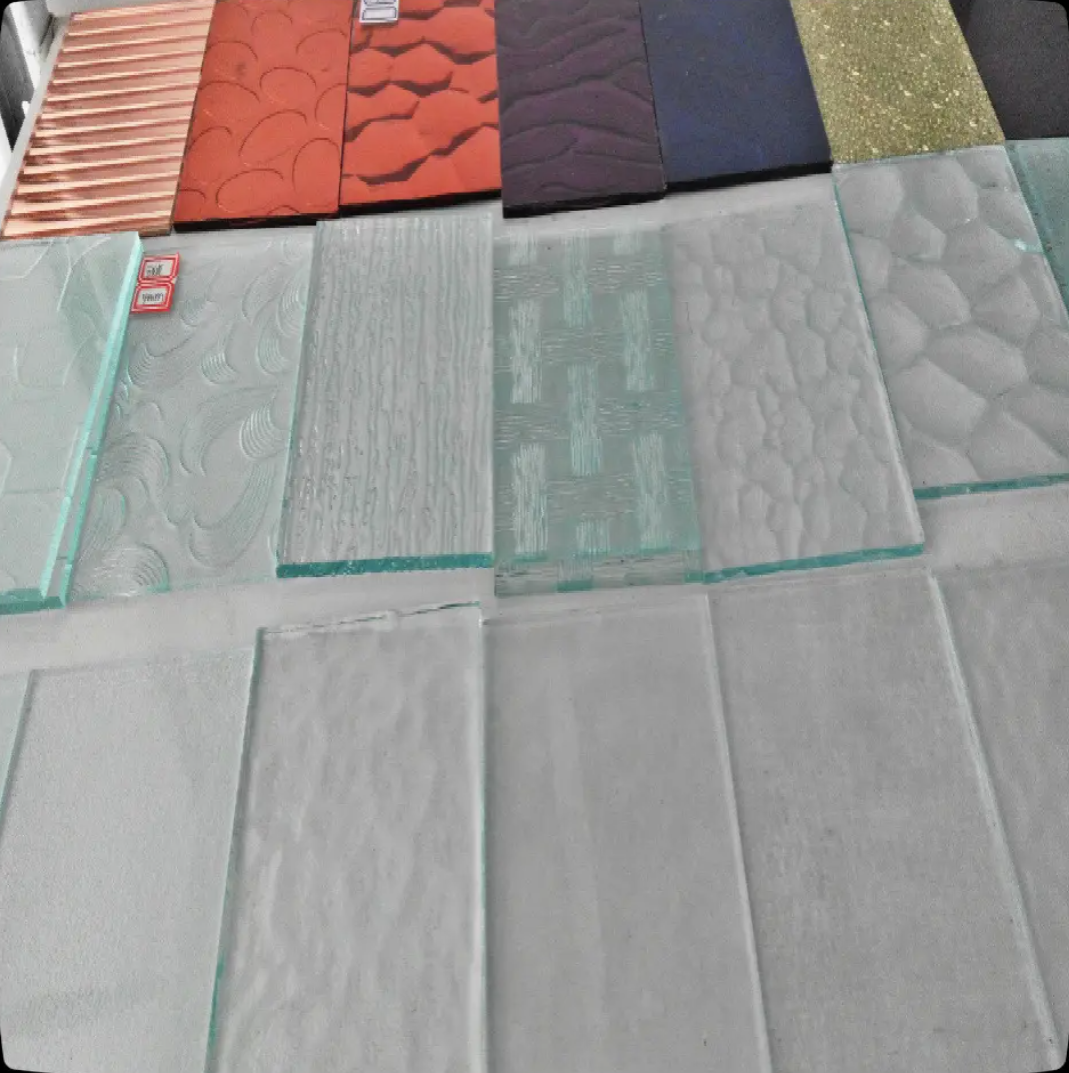Embossed glass, also known as patterned glass or knurled glass, is a decorative glass that uses mechanical or manual methods to press various patterns on the glass surface. The following is a summary of the production process of embossed glass and related applications:
Embossed glass production process
Substrate selection: Select transparent or colored flat glass as the substrate to ensure that its quality meets the requirements of the embossing process.
Heating and softening: Heat the selected glass to a point close to the softening point to give it a certain plasticity for easy pattern pressing.
Pressing patterns: Use a mold or roller with a specific pattern to press the desired pattern on the glass surface. This step can be manual or mechanized.
Cooling and shaping: The pressed glass is quickly cooled to fix the pattern shape and prevent the pattern from deforming.
Grinding and trimming: Grind the edges of the embossed glass to remove burrs and ensure that the edges are smooth and safe.
Quality inspection: Perform quality inspection on embossed glass, including pattern clarity, surface flatness, and edge processing.
Subsequent treatment: As needed, patterned glass may also be coated, tempered or otherwise specially treated to meet specific usage requirements.
Application of patterned glass
Architectural decoration: Patterned glass is often used in doors, windows, partitions, curtain walls, etc. of buildings to provide good lighting and decorative effects.
Home decoration: In the home environment, patterned glass can be used for screens, bathroom doors, furniture doors, etc. to add privacy and beauty.
Commercial space: Commercial spaces such as shopping malls, hotels, and restaurants use patterned glass as a decorative element to create a unique atmosphere.
Lamp production: Patterned glass is also used in the production of lamps, such as chandeliers, wall lamps, table lamps, etc., to provide unique light and shadow effects.
Artistic creation: Artists and designers use the texture and light transmittance of patterned glass to create and display art.
Safety glass: Since the edges of embossed glass are relatively smooth after breaking, it is not easy to cause harm, and it is also often used in occasions where safety protection needs to be considered.
Embossed glass has been widely used in many fields for its unique decorative effect and practicality.
- 上一篇:Aluminum mirror
- 下一篇:Jade glass



